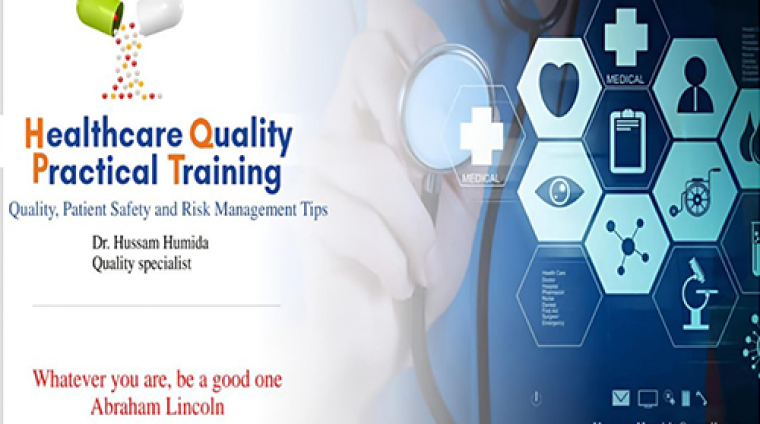Healthcare Quality Practical: Hands-on training focused on implementing quality standards and improving patient care processes in healthcare settings
By the end of the course, participants will be able to:
1. Define the concept of quality in healthcare and its significance.
2. Describe the structure and functions of the Quality Department.
3. Explain the daily role of a Quality Officer in a healthcare setting.
4. Identify the key roles within a quality team and their contributions.
5. Apply the Donabedian Model to assess healthcare quality.
6. Perform a gap analysis to identify areas for improvement.
7. Understand and implement effective data collection methods for quality improvement.
8. Apply the FOCUS-PDCA methodology to design and execute an improvement project.
9. Conduct a Root Cause Analysis (RCA) to identify and address underlying issues in a scenario.
10. Demonstrate practical application of quality improvement tools and techniques.
11. Differentiate between risk management and quality management in healthcare.
12. Identify, assess, and prioritize risks using structured tools.
13. Develop risk control strategies to mitigate identified risks effectively.
14. Understand the role of incident reporting in risk management.
15. Conduct a Failure Mode and Effects Analysis (FMEA) for a specific scenario.
16. Understand the principles of patient safety and their importance in healthcare.
17. Implement the International Patient Safety Goals (IPSGs) to improve care quality.
18. Reflect on and apply patient safety principles in practical healthcare scenarios.
- 19 Sections
- 6 Lessons
- 10 Weeks
- - Introduction to Quality6
- Quality Department Divisions0
- Daily Role of the Quality Officer0
- Quality Team0
- Donabedian Model0
- Gap Analysis0
- End of the Day Activity0
- Data Collection0
- FOCUS PDCA (Improvement Project Scenario)0
- Root Cause Analysis0
- Risk Management vs Quality Management0
- Risk Identification0
- Risk Assessment0
- Risk Control0
- Incident Reporting0
- FMEA (Improvement Project Scenario)0
- International Patient Safety Goals0
- patient safety principles in practical healthcare scenarios0
- Section 30
- Healthcare Quality Manager with over 10 years exiperience.
- Member of Saudi Standards Association (SASU), ISQUA, IHI
- JCI Accrediation, CBAHI Accrediation, Aramco Accrediation


